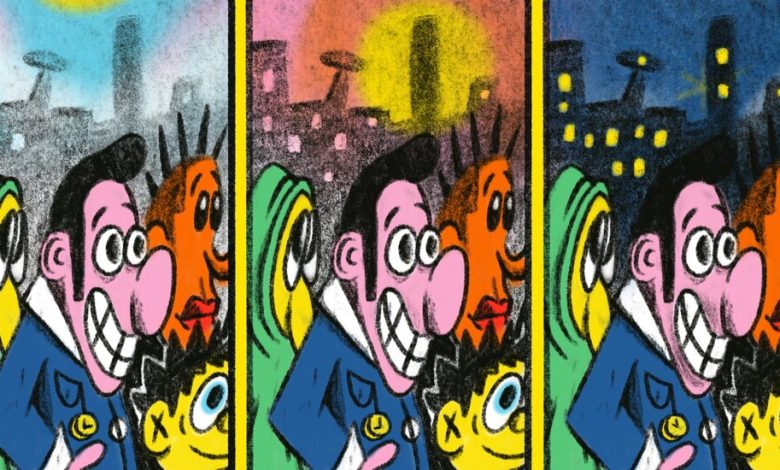The Future of Eating Out Is Lining Up

It is hardly the only bagel line in Los Angeles, but people I trust say Courage Bagels is worth the wait.
I take a place in line on an otherwise quiet block in Virgil Village, an East Hollywood neighborhood where little independent restaurants seek reasonable rents and longtime residents worry their low rents won’t stay that way. When I find myself between two groups of regulars, I do what any newbie would do: I eavesdrop. They debate their sandwich orders the way a fashion editor might assemble an outfit, seeking a whole that is more than the sum of its parts. I revise my order with every overheard comment.
I consider bolting after 20 minutes. Then again at the 40-minute mark — but the only thing sillier than standing here, I realize, would be to leave empty-handed.
This is brunch in 2024. Chefs on a budget and young customers trying to stretch their dining dollars or discover the next big thing are embracing the line-and-dine option because no one wants to give up on fun, regardless of the time it might require. Customers settle for less to get more, at times sacrificing anything resembling ambience for the opportunity to eat well. Yes, there’s a $24 wild Alaskan salmon roe sandwich, but there’s also a $6 bagel and schmear.
The modern era of line culture began in 2006, to my mind, at the original Shake Shack in Manhattan’s Madison Square Park. All of a sudden waiting was fun, complete with the Shake Shack Cam to record the scene. Now a line runs from Los Angeles’s citywide bagel subculture to Seattle’s Doce Donut to Chicago’s Michelin-starred Kasama, which offers a sit-down tasting menu at dinner but draws a crowd for its daytime bakery and breakfast menus.
For most of our history, standing in a food line has conveyed abject want — bread lines during the Depression and food banks to this day. Today, waiting is a two-tier system, indicating tough times on some blocks, where people still line up based on need, and free time on others, where people line up by choice.